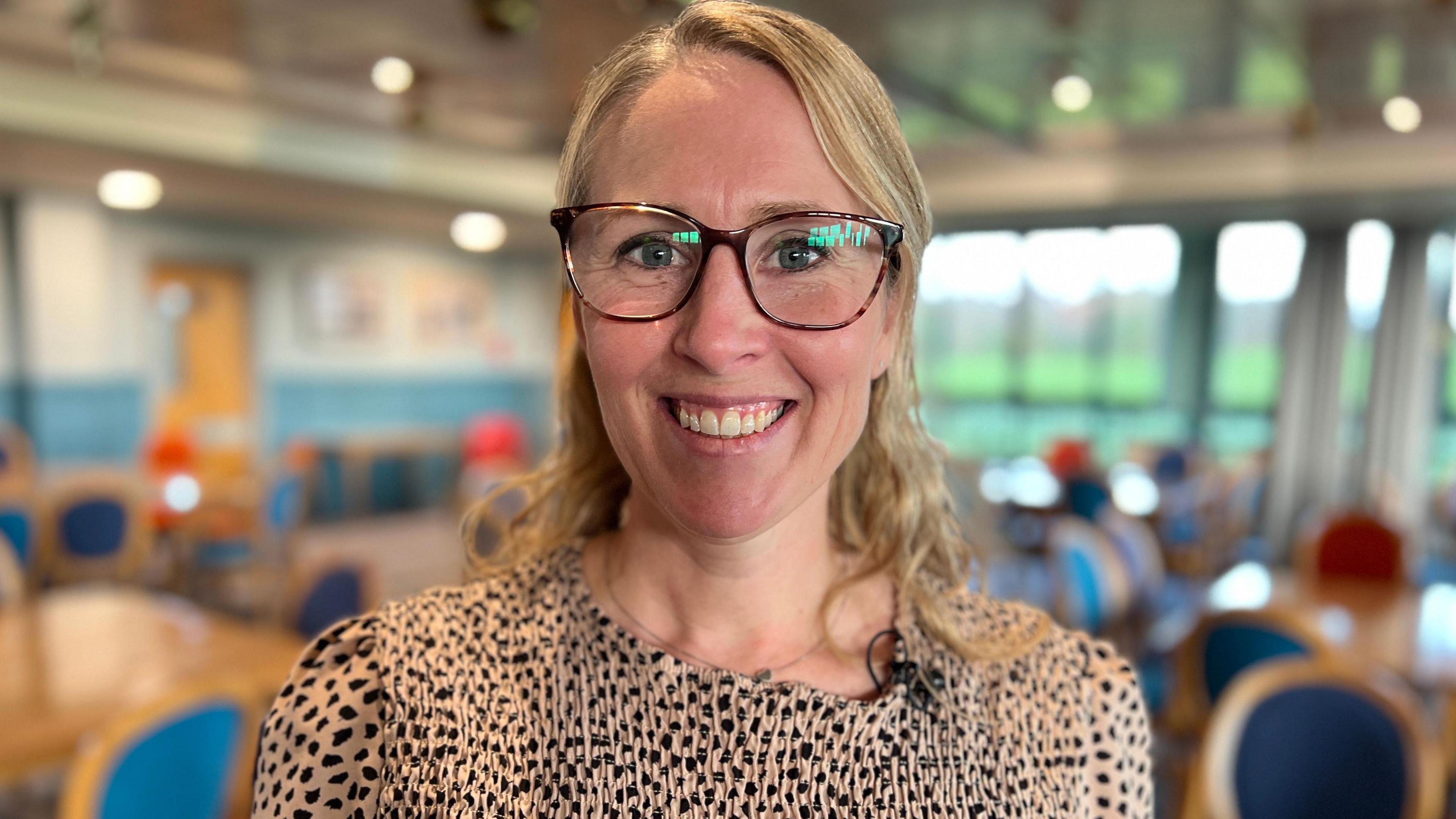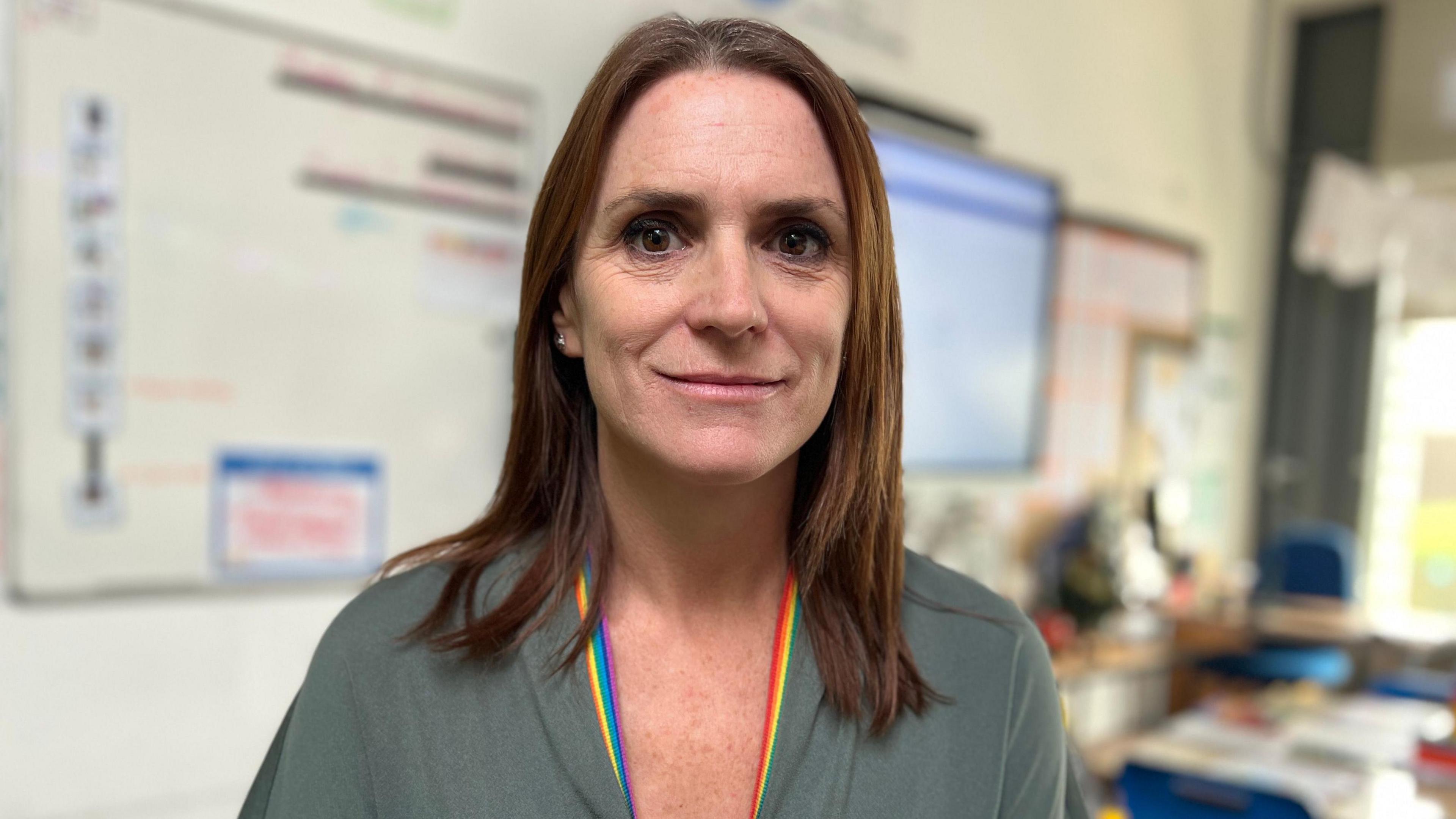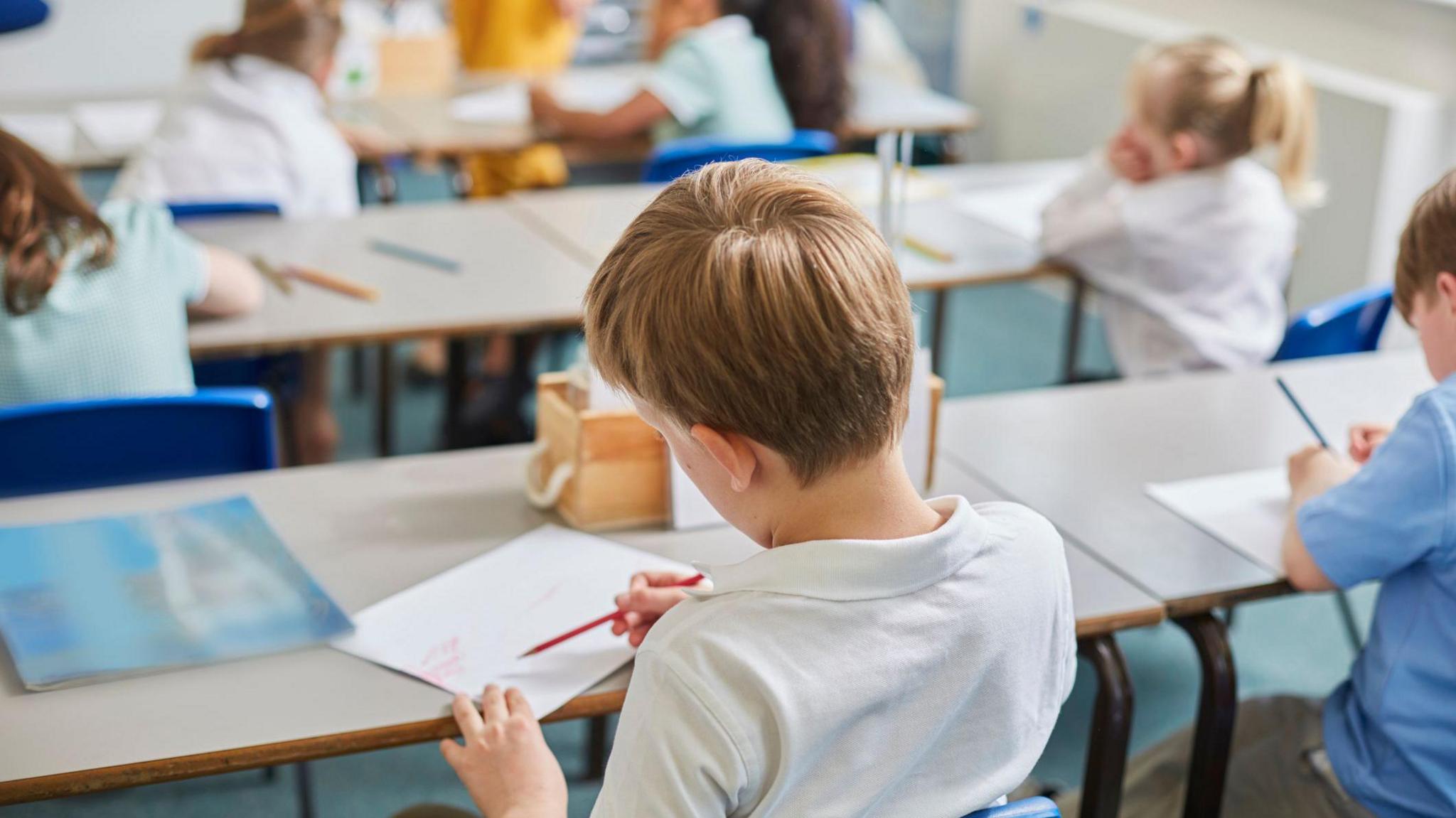ADHD pilot could make 'big difference' for children

Parents who have been through the journey are hopeful the pilot will make a difference
- Published
Kenton Mee is one of many parents to have watched their child struggle with neurodivergent needs.
When his son was young, he says there were signs of sensory-seeking needs but they struggled to get support.
"It took a significant number of years and going through the school system for those needs to be recognised and identified," he said.
Even though his son is now older, Mr Mee is involved in the roll-out of a pilot scheme which aims to offer early support to children while they await a formal assessment for conditions including autism or attention deficit hyperactivity disorder (ADHD).
He is the chief executive of the North Somerset Parent Carers Working Together group which along with health providers, charities and schools are working on a six month trial of a new profiling tool for children.
It is taking place in Bristol, South Gloucestershire and North Somerset and will identify needs and give support to child, regardless of a diagnosis.

It is hoped the pilot will provide a vital safety net for children
Vicki Bates, children's autism assessment lead at Sirona Care & Health which is delivering the pilot, said: "For a lot of the support that is available you don't need a diagnosis, so we recognise there are difficulties around waiting times.
"Understanding a young person's needs and supporting them at the earliest opportunity gives them the greatest chance of success."
Mr Mee supports the new approach which is being trialled in 42 primary and secondary schools over six months.
He said: "I think that we will see a system that supports that child or young person, and supports the family, and that will make a big difference in them being able to then access education, access their communities, so I'm hopeful it'll make a big difference in the long-run."

Headteacher Donna Harris said she wants the trial to continue beyond March
At Herons' Moor Academy in Weston-super-Mare, the new method has been used in the last few weeks for children who have been on the waiting list for a while.
Donna Harris, who is the school's assistant principal, told the BBC that one child has received help with their sleep which was identified as an issue.
She said: "One of the strategies has been to use an app that helps with mindfulness... and it was something that we wouldn't have thought of before.
"They've been able to go away and have a look at that with their family and that's really started to have a positive impact."
She wants the trial to continue beyond March because she is sure it is already making a difference.
She added: "Being able to contact professionals and have detailed conversations with them about these young people ahead of any diagnosis or anything, is really good."
Once the trial is over the local health provider will evaluate the results to see if the early intervention makes a difference.
Get in touch
Tell us which stories we should cover in Bristol
Follow BBC Bristol on Facebook, external, X, external and Instagram, external. Send your story ideas to us on email or via WhatsApp on 0800 313 4630.
- Published3 December 2024
